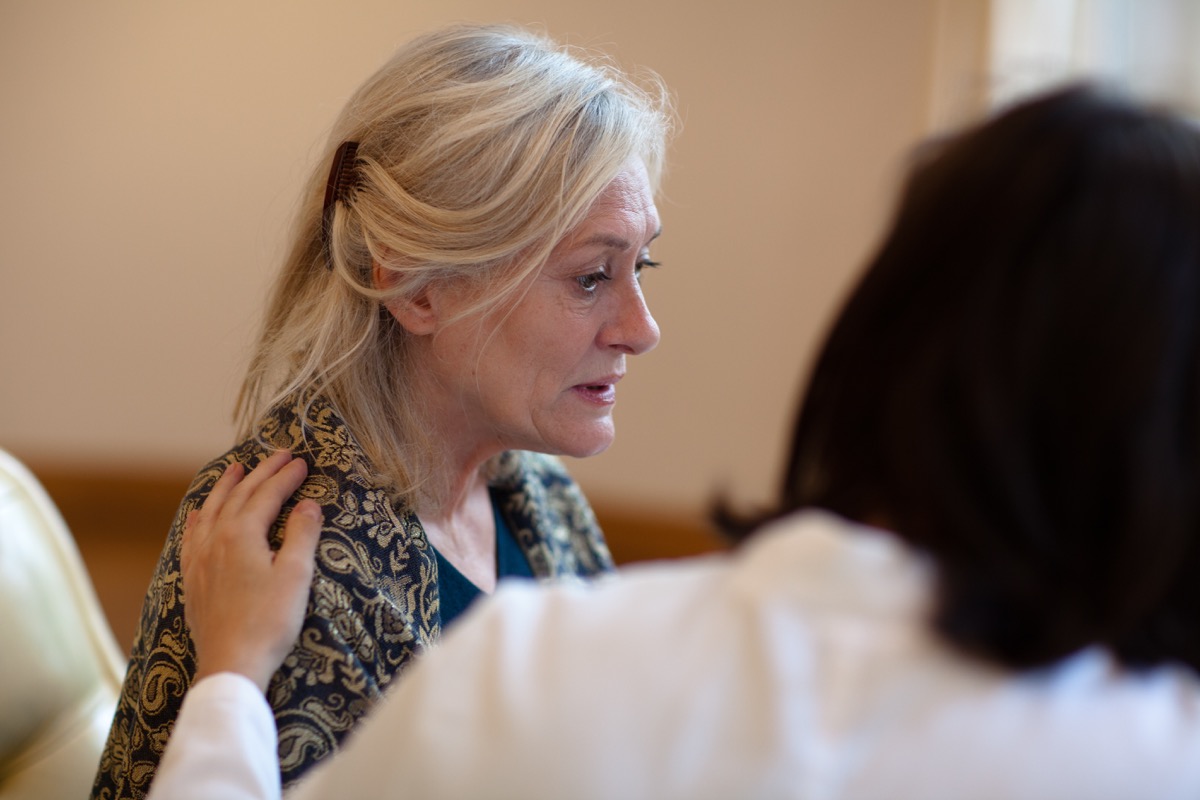RELATED: 91 Percent of Older Adults With Dementia Have This in Common, Research Says. This month, researchers at the University of Texas Southwestern Medical Center published a study in the Journal of Applied Physiology looking into the connection between Alzheimer’s and other forms of dementia and exercise. The Texas scientists were interested in finding out what could be done to improve the quality of life for the more than 6 million Americans living with some form of dementia.ae0fcc31ae342fd3a1346ebb1f342fcb The year-long study enrolled 70 men and women aged 55 to 80 with mild cognitive impairment (MCI), which progresses to full-blown Alzheimer’s disease half the time. Researchers split the participants into two groups: The first was assigned to do some brisk walking multiple times a week, while the second took part in a stretching and toning class with no aerobic component. The former group began with three workout sessions a week lasting 25 to 30 minutes, and by seven months in, they built up to four or five brisk walking sessions each week that lasted 30 to 40 minutes. According to the study, the walking group saw increased motor skills and improved memory and cognitive function, in addition to improved cardio fitness. The group assigned to do stretching and toning activities for a year, however, did not. “Aerobic exercise is very important for improving both vascular function and brain function,” said Rong Zhang, PhD, the study’s lead researcher and a neurology professor at UT Southwestern, told Heathline. “The brain is a unique organ. It needs constant blood flow and oxygen supply.” RELATED: If You Notice This While Talking, It May Be an Early Sign of Dementia. While we typically think of Alzheimer’s as a disease that affects the very elderly, more and more cases are cropping up in younger patients, too. Nearly 30 percent of all cases are now reported in Americans under 75, according to the Alzheimer’s Association. And early-onset dementia—that is, dementia diagnosed in people between the ages of 30 and 65—has more than doubled in the last several years, according to Blue Cross Blue Shield data. Between 250,000 and 300,000 Americans currently have some form of early-onset dementia, and women make up a disproportionate number of these cases. Nearly 60 percent of all early-onset cases are diagnosed among women, Blue Cross Blue Shield reports. RELATED: Drinking Your Coffee Like This Can Slash Your Alzheimer’s Risk, Study Says. Not all memory lapses are a sign of dementia, but experts at the Centers for Disease Control and Prevention (CDC) say if you’re concerned about a possible dementia diagnosis, there are several things to watch out for. If you find yourself suddenly becoming easily lost or confused or have difficulty remembering common words or completing daily tasks, you may be experiencing the early stages of dementia. Dementia can also cause people to repeat themselves or have difficulty following stories. There are also mood changes, such as apathy and depression, that could be symptomatic of the disease. If you think you may be experiencing dementia, you should speak with your physician. RELATED: For more up-to-date information, sign up for our daily newsletter. Scientists are working diligently to uncover cures for cognitive diseases. Earlier this summer, the U.S. Food and Drug Administration approved a first-of-its kind drug to treat the underlying causes of dementia called Aduhelm. Because it’s the first drug to treat the underlying causes rather than focusing on the symptoms of Alzheimer’s, the FDA granted Aduhelm “fast track” or accelerated approval, despite 10 of the 11 members of the FDA’s panel on the drug voting against it. Three members of the panel quit after Aduhelm was approved, claiming that it offered false hope to people with Alzheimer’s. In his resignation from the panel, Aaron Kesselheim, MD, a professor at Harvard Medical School, called the drug’s approval “probably the worst drug approval decision in recent U.S. history,” and said Aduhelm offers “little evidence” that it would “meaningfully benefit” people suffering from dementia. But as scientists continue to debate the efficacy of this drug, there’s no doubt that doing more brisk walking is a safe and simple way to keep your brain healthy. RELATED: Scientists Say This Can Predict Your Risk of Getting Dementia in the Next 5 Years.



